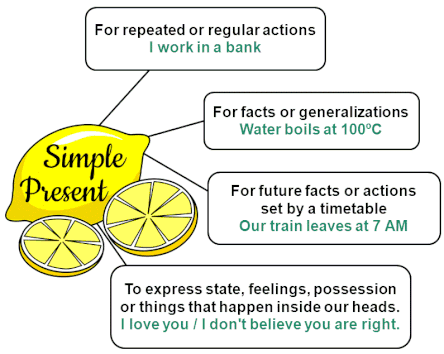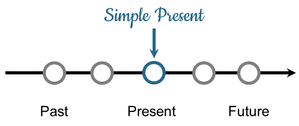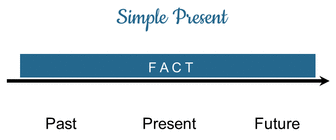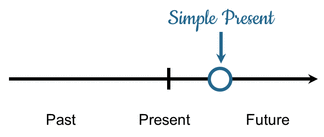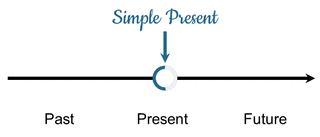Home / Learn English / Grammar / Verbs - Verb Tenses / How to use the Simple Present Tense
How to use the Simple Present Tense
|
VERB TENSES
SIMPLE PRESENT TENSE
REFERENCE
EXERCISES
|
THE USE OF SIMPLE PRESENT TENSE
1) For repeated or regular actions
Use simple present to talk about repeated actions, habits, hobbies, regular activities or scheduled events.
EXAMPLES
2) For facts or generalizations Use simple present to talk about things that are always / generally true or facts, although these facts are untrue. Also, simple present is used to make generalizations about people or things.
EXAMPLES
3) For future facts or actions set by a timetable Use simple present to talk about events happening in the near future, future facts or scheduled events, usually found in a timetable or a chart. Furthermore, it used to talk about fixed plan or arrangements.
EXAMPLES
Simple present tense is also used for talking about the future after words like: ‘when’, ‘until’, ‘before’, ‘after’ and ‘as soon as’ with future constructions.
EXAMPLES
4) To express state, feelings, possession or things that happen inside our heads. (With Non-continuous verbs Use simple present to express the idea that an action is happening or is not happening now. Non-continuous verbs are usually verbs that you cannot see somebody doing. These verbs are rarely used in continuous forms. Here are some of the most common non-continuous verbs:
Feeling: Dislike, fear, feel, hate, like, love, prefer, want and wish. Senses: Appear, feel, hear, see, seem, smell, sound and taste. Communication: Agree, astonish, deny, disagree, impress, mean, please, promise, satisfy and surprise. Thinking: Believe, imagine, know, mean, realize, recognize, remember and understand. Other states: Be, belong, concern, consist, contain, cost, depend, deserve, fit, include, involve, lack, matter, need, owe, own and possess.
EXAMPLES
Adverb placement You can add adverbs such as: always, frequently, only, never, ever, still, just, etc. between the subject and the verb. EXAMPLES
|
| ||||||
|
|
|
